
Isaac Ilyich Levitan Giclée Fine Art Prints 1 of 5
1860-1900
Russian Peredvizhniki Painter
He died in 1900, only forty years old, leaving behind a trove of unfinished paintings and countless studies - all pointing to a life that burned intensely with creativity and an urge to distill the spirit of Russian nature onto canvas. If you stand before one of his contemplative landscapes, it is startling how fresh they feel, as if the bracing air from a long-lost countryside wafts right off the surface. The posthumous exhibitions that followed his death showcased the strength of his vision, prompting admirers and critics to conclude that this quiet, thoughtful painter had truly elevated Russian landscape art. His remains were eventually moved to the Novodevichy Cemetery, near the grave of a close friend and supporter, symbolizing the deep intertwining of his art with the cultural fabric of the era.
Such a prominent reputation in his final decade was hard-won. By the 1890s, he battled persistent health issues and endured the constraints placed on Jewish citizens in Moscow. Despite official mandates ordering him out of the city, he would find ways to return, thanks to ardent supporters who recognized his importance. In these years, his pictures - “Quiet Abode,” “Eternal Peace,” and others - garnered considerable acclaim. Their layered emotional charge spoke directly to those longing for a deeper spiritual dimension in art, even if the artist himself professed a simpler ambition: to capture nature’s most elusive moods. Whenever his heart condition allowed, he traveled to favored locales along the Volga or to friends’ estates, assembling sketches that formed the bedrock of his refined, resonant canvases. And though his health often faltered, the decade was punctuated by invitations to exhibit in Munich and other significant forums, proving that his vision transcended local boundaries.
His considerable efforts in the 1880s, meanwhile, laid the groundwork for that eventual success. The allure of the Volga region featured prominently in his output, capturing luminous waterside scenes that felt both personal and grand. Frequent summer trips, sometimes alongside friends and patrons, informed a fluid approach to light and color. By working en plein air, he developed a keen sense of the delicate transitions in weather and time of day. During these years he also made forays to the Crimea, ventured briefly into Italy, and participated in the Society for Traveling Art Exhibitions - the “Peredvizhniki.” That association, while beneficial, was not always enough to shield him from financial stress. Indeed, even as his name rose in esteem, he continued teaching or selling small pictures to support himself. Still, the decade shaped his mature style - pure landscapes that placed mood above narrative.
Looking further back, one sees that his earliest struggles in the 1870s were as formative as the glories that followed. Born in 1860 into a family of a railroad employee, he was brought to Moscow in hopes of a better life. This move proved pivotal, because in 1873 he was accepted into the Moscow School of Painting, Sculpture and Architecture. Despite his promise, he was quickly beset by personal tragedies - his mother’s death in 1875, then his father’s in 1877. Destitute, he sometimes slept at the School. Recognizing his rare gifts, the institution waived tuition and offered stipends for basic supplies. By the close of that decade, the first small wave of recognition arrived through group shows where critics were intrigued by the gentle landscapes he exhibited. The seeds of a major artistic voice were planted precisely in this period.
His entire career, therefore, was a nuanced dance between real hardship and irrepressible talent. A close circle of friends - including writers and fellow painters - provided moral and financial assistance. As his art developed, so did his friendships with literary figures like Anton Chekhov, whose keen sense of atmosphere paralleled the painter’s own. Glowing endorsements from collectors such as Pavel Tretyakov brought him wider visibility. Over time, one glimpses a painter who refused to be defined by his circumstances, though they surely weighed on him. Perhaps that undercurrent of adversity nurtured a unique sensitivity to fleeting lights and somber skies, resulting in works that remain timeless. Even viewed today, the thoughtful, melancholic lyricism of his paintings encapsulates not just a Russian landscape, but a universal longing for peace and reflection.
Such a prominent reputation in his final decade was hard-won. By the 1890s, he battled persistent health issues and endured the constraints placed on Jewish citizens in Moscow. Despite official mandates ordering him out of the city, he would find ways to return, thanks to ardent supporters who recognized his importance. In these years, his pictures - “Quiet Abode,” “Eternal Peace,” and others - garnered considerable acclaim. Their layered emotional charge spoke directly to those longing for a deeper spiritual dimension in art, even if the artist himself professed a simpler ambition: to capture nature’s most elusive moods. Whenever his heart condition allowed, he traveled to favored locales along the Volga or to friends’ estates, assembling sketches that formed the bedrock of his refined, resonant canvases. And though his health often faltered, the decade was punctuated by invitations to exhibit in Munich and other significant forums, proving that his vision transcended local boundaries.
His considerable efforts in the 1880s, meanwhile, laid the groundwork for that eventual success. The allure of the Volga region featured prominently in his output, capturing luminous waterside scenes that felt both personal and grand. Frequent summer trips, sometimes alongside friends and patrons, informed a fluid approach to light and color. By working en plein air, he developed a keen sense of the delicate transitions in weather and time of day. During these years he also made forays to the Crimea, ventured briefly into Italy, and participated in the Society for Traveling Art Exhibitions - the “Peredvizhniki.” That association, while beneficial, was not always enough to shield him from financial stress. Indeed, even as his name rose in esteem, he continued teaching or selling small pictures to support himself. Still, the decade shaped his mature style - pure landscapes that placed mood above narrative.
Looking further back, one sees that his earliest struggles in the 1870s were as formative as the glories that followed. Born in 1860 into a family of a railroad employee, he was brought to Moscow in hopes of a better life. This move proved pivotal, because in 1873 he was accepted into the Moscow School of Painting, Sculpture and Architecture. Despite his promise, he was quickly beset by personal tragedies - his mother’s death in 1875, then his father’s in 1877. Destitute, he sometimes slept at the School. Recognizing his rare gifts, the institution waived tuition and offered stipends for basic supplies. By the close of that decade, the first small wave of recognition arrived through group shows where critics were intrigued by the gentle landscapes he exhibited. The seeds of a major artistic voice were planted precisely in this period.
His entire career, therefore, was a nuanced dance between real hardship and irrepressible talent. A close circle of friends - including writers and fellow painters - provided moral and financial assistance. As his art developed, so did his friendships with literary figures like Anton Chekhov, whose keen sense of atmosphere paralleled the painter’s own. Glowing endorsements from collectors such as Pavel Tretyakov brought him wider visibility. Over time, one glimpses a painter who refused to be defined by his circumstances, though they surely weighed on him. Perhaps that undercurrent of adversity nurtured a unique sensitivity to fleeting lights and somber skies, resulting in works that remain timeless. Even viewed today, the thoughtful, melancholic lyricism of his paintings encapsulates not just a Russian landscape, but a universal longing for peace and reflection.
119 Isaac Levitan Artworks
Page 1 of 5
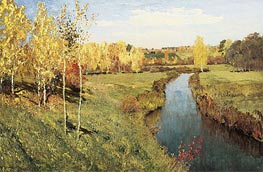
Giclée Canvas Print
$61.76
$61.76
SKU: 8017-LEV
Isaac Ilyich Levitan
Original Size:82 x 126 cm
The Tretyakov Gallery, Moscow, Russia
Isaac Ilyich Levitan
Original Size:82 x 126 cm
The Tretyakov Gallery, Moscow, Russia
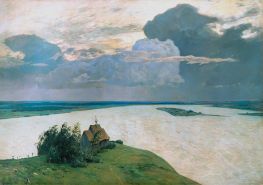
Giclée Canvas Print
$67.06
$67.06
SKU: 959-LEV
Isaac Ilyich Levitan
Original Size:150 x 206 cm
The Tretyakov Gallery, Moscow, Russia
Isaac Ilyich Levitan
Original Size:150 x 206 cm
The Tretyakov Gallery, Moscow, Russia
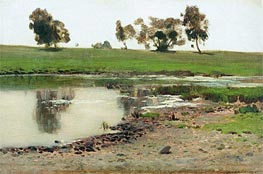
Giclée Canvas Print
$61.76
$61.76
SKU: 8113-LEV
Isaac Ilyich Levitan
Original Size:25 x 34.5 cm
Chelyabinsk Region Picture Gallery, Chelyabinsk, Russia
Isaac Ilyich Levitan
Original Size:25 x 34.5 cm
Chelyabinsk Region Picture Gallery, Chelyabinsk, Russia
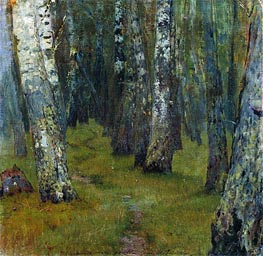
Giclée Canvas Print
$61.76
$61.76
SKU: 8038-LEV
Isaac Ilyich Levitan
Original Size:35.5 x 36 cm
Regional Art Museum, Stavropol, Russia
Isaac Ilyich Levitan
Original Size:35.5 x 36 cm
Regional Art Museum, Stavropol, Russia
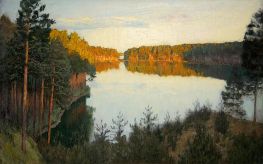
Giclée Canvas Print
$61.76
$61.76
SKU: 8068-LEV
Isaac Ilyich Levitan
Original Size:48.8 x 80 cm
The Rostov Regional Fine Art Museum, Rostov-on-Don, Russia
Isaac Ilyich Levitan
Original Size:48.8 x 80 cm
The Rostov Regional Fine Art Museum, Rostov-on-Don, Russia
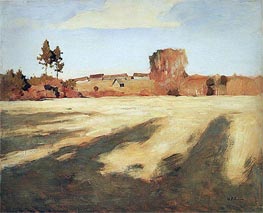
Giclée Canvas Print
$61.76
$61.76
SKU: 8127-LEV
Isaac Ilyich Levitan
Original Size:59.5 x 73 cm
Art Gallery, Yerevan, Armenia
Isaac Ilyich Levitan
Original Size:59.5 x 73 cm
Art Gallery, Yerevan, Armenia
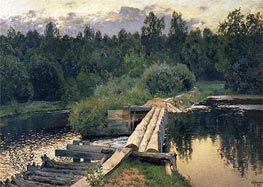
Giclée Canvas Print
$66.38
$66.38
SKU: 8033-LEV
Isaac Ilyich Levitan
Original Size:unknown
The Tretyakov Gallery, Moscow, Russia
Isaac Ilyich Levitan
Original Size:unknown
The Tretyakov Gallery, Moscow, Russia
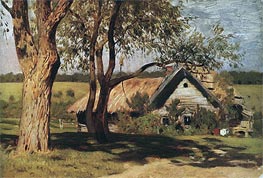
Giclée Canvas Print
$61.76
$61.76
SKU: 8054-LEV
Isaac Ilyich Levitan
Original Size:21.5 x 30.5 cm
State Russian Museum, St. Petersburg, Russia
Isaac Ilyich Levitan
Original Size:21.5 x 30.5 cm
State Russian Museum, St. Petersburg, Russia
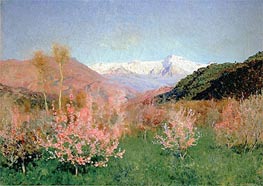
Giclée Canvas Print
$66.20
$66.20
SKU: 8045-LEV
Isaac Ilyich Levitan
Original Size:42.8 x 60.2 cm
The Tretyakov Gallery, Moscow, Russia
Isaac Ilyich Levitan
Original Size:42.8 x 60.2 cm
The Tretyakov Gallery, Moscow, Russia
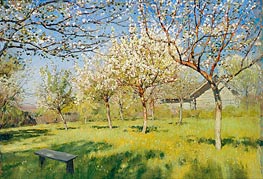
Giclée Canvas Print
$61.76
$61.76
SKU: 8135-LEV
Isaac Ilyich Levitan
Original Size:34 x 50 cm
The Tretyakov Gallery, Moscow, Russia
Isaac Ilyich Levitan
Original Size:34 x 50 cm
The Tretyakov Gallery, Moscow, Russia
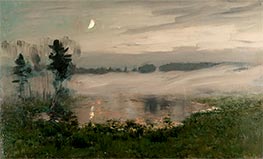
Giclée Canvas Print
$61.76
$61.76
SKU: 18511-LEV
Isaac Ilyich Levitan
Original Size:40.4 x 62.4 cm
Public Collection
Isaac Ilyich Levitan
Original Size:40.4 x 62.4 cm
Public Collection
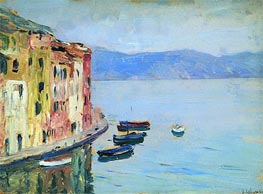
Giclée Canvas Print
$61.76
$61.76
SKU: 8074-LEV
Isaac Ilyich Levitan
Original Size:15.7 x 21.4 cm
Private Collection
Isaac Ilyich Levitan
Original Size:15.7 x 21.4 cm
Private Collection
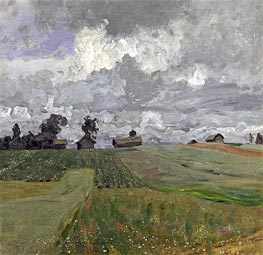
Giclée Canvas Print
$90.88
$90.88
SKU: 16895-LEV
Isaac Ilyich Levitan
Original Size:84 x 86 cm
The Tretyakov Gallery, Moscow, Russia
Isaac Ilyich Levitan
Original Size:84 x 86 cm
The Tretyakov Gallery, Moscow, Russia
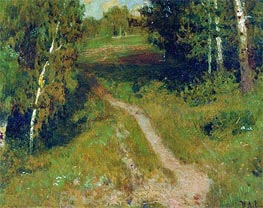
Giclée Canvas Print
$61.76
$61.76
SKU: 8037-LEV
Isaac Ilyich Levitan
Original Size:19 x 23 cm
Art Museum M. S. Tuganov, Vladikavkaz, Russia
Isaac Ilyich Levitan
Original Size:19 x 23 cm
Art Museum M. S. Tuganov, Vladikavkaz, Russia
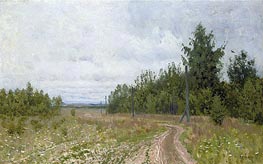
Giclée Canvas Print
$88.61
$88.61
SKU: 8029-LEV
Isaac Ilyich Levitan
Original Size:43 x 66.6 cm
Private Collection
Isaac Ilyich Levitan
Original Size:43 x 66.6 cm
Private Collection
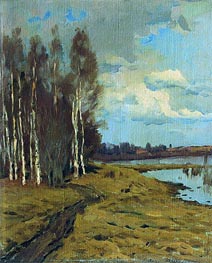
Giclée Canvas Print
$61.76
$61.76
SKU: 8114-LEV
Isaac Ilyich Levitan
Original Size:31 x 26 cm
The State Central Museum of Musical Culture M. I. Glinka, Moscow, Russia
Isaac Ilyich Levitan
Original Size:31 x 26 cm
The State Central Museum of Musical Culture M. I. Glinka, Moscow, Russia
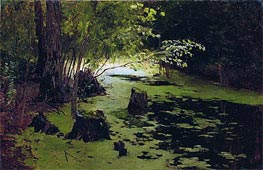
Giclée Canvas Print
$61.76
$61.76
SKU: 8124-LEV
Isaac Ilyich Levitan
Original Size:19.5 x 30 cm
The State Architectural and Art Memorial Estate, Ples, Russia
Isaac Ilyich Levitan
Original Size:19.5 x 30 cm
The State Architectural and Art Memorial Estate, Ples, Russia
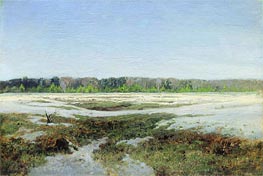
Giclée Canvas Print
$61.76
$61.76
SKU: 8021-LEV
Isaac Ilyich Levitan
Original Size:49 x 72 cm
Art Gallery, Taganrog, Russia
Isaac Ilyich Levitan
Original Size:49 x 72 cm
Art Gallery, Taganrog, Russia
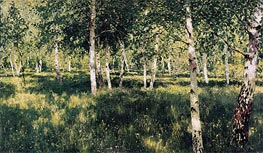
Giclée Canvas Print
$61.76
$61.76
SKU: 8009-LEV
Isaac Ilyich Levitan
Original Size:28 x 50 cm
The Tretyakov Gallery, Moscow, Russia
Isaac Ilyich Levitan
Original Size:28 x 50 cm
The Tretyakov Gallery, Moscow, Russia
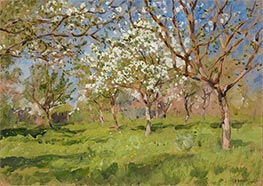
Giclée Canvas Print
$61.76
$61.76
SKU: 18512-LEV
Isaac Ilyich Levitan
Original Size:18.5 x 25.8 cm
The Tretyakov Gallery, Moscow, Russia
Isaac Ilyich Levitan
Original Size:18.5 x 25.8 cm
The Tretyakov Gallery, Moscow, Russia
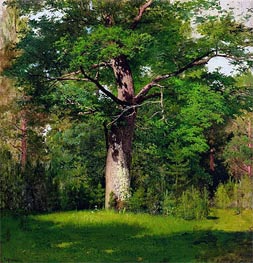
Giclée Canvas Print
$61.76
$61.76
SKU: 8056-LEV
Isaac Ilyich Levitan
Original Size:57.5 x 57.6 cm
The Tretyakov Gallery, Moscow, Russia
Isaac Ilyich Levitan
Original Size:57.5 x 57.6 cm
The Tretyakov Gallery, Moscow, Russia
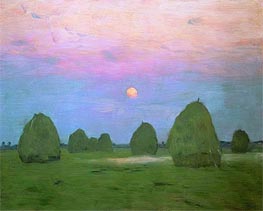
Giclée Canvas Print
$73.87
$73.87
SKU: 962-LEV
Isaac Ilyich Levitan
Original Size:59.8 x 74.6 cm
The Tretyakov Gallery, Moscow, Russia
Isaac Ilyich Levitan
Original Size:59.8 x 74.6 cm
The Tretyakov Gallery, Moscow, Russia
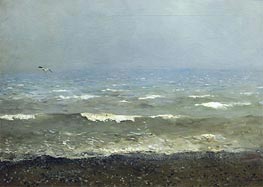
Giclée Canvas Print
$66.38
$66.38
SKU: 8036-LEV
Isaac Ilyich Levitan
Original Size:41 x 59 cm
The Tretyakov Gallery, Moscow, Russia
Isaac Ilyich Levitan
Original Size:41 x 59 cm
The Tretyakov Gallery, Moscow, Russia
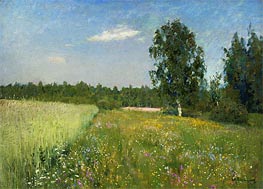
Giclée Canvas Print
$67.40
$67.40
SKU: 8018-LEV
Isaac Ilyich Levitan
Original Size:43.5 x 61 cm
The Tretyakov Gallery, Moscow, Russia
Isaac Ilyich Levitan
Original Size:43.5 x 61 cm
The Tretyakov Gallery, Moscow, Russia